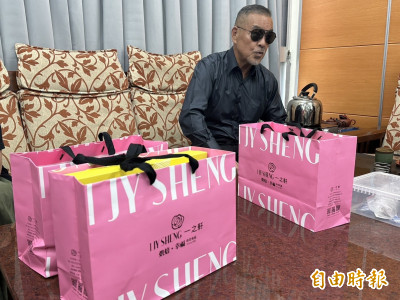《TAIPEI TIMES 焦點》 Siew urges ‘cross-strait economic ties 2.0’
/ Staff writer, with CNA, BEIJING
Former vice president Vincent Siew (蕭萬長) on Sunday urged China to work with Taiwan to elevate their economic relations to a new level.
During a meeting with Chinese President Xi Jinping (習近平), Siew said he put forth a proposal to work on a new structure, which could be called “cross-strait economic ties version 2.0.”
There will be three ways to achieve that goal, Siew told reporters following his meeting with Xi at the Great Hall of the People on the sidelines of an APEC leaders’ meeting in Beijing. Siew was attending the summit on behalf of President Ma Ying-jeou (馬英九).
First, Siew said, China and Taiwan can work for a new mechanism in which both sides would jointly participate in regional economic blocs such as the Trans-Pacific Partnership and the Regional Comprehensive Economic Partnership — an effort that he believes would boost Taiwanese confidence in the government’s agenda to liberalize trade ties with China.
Second, Siew said, both sides should jointly build a new model of economic cooperation by completing the follow-up negotiations on the cross-strait Economic Cooperation Framework Agreement (ECFA), focusing on the trade in goods agreement.
Third, he said, China and Taiwan should work on building a new platform of cross-strait exchanges with the general public at the center, so that grass-roots actors can participate in exchange programs and share the fruits of such exchanges.
During the 30-minute meeting with Xi and other senior Chinese officials, Siew and his delegation called on China to work with Taiwan in maintaining the three “noes” in bilateral relations: no change to the main principle of peaceful development of cross-strait ties; no change to the so-called “1992 consensus” as a basis for negotiations; and no change to institutionalizing their economic cooperation for the sake of benefiting people on both sides of the Taiwan Strait.
For his part, Xi called on Taiwan to work with China on developing “long-term and healthy” cross-strait relations.
Xi said since he took office some achievements have been made over the past year and more in the development of cross-strait ties, but he added that there are also some “new problems.”
He said both sides should strengthen their mutual trust and confidence, respect each other and engage in “benevolent interaction” to keep bilateral ties developing in a “long-term and healthy direction.”
On Taipei’s call to join regional economic integration, Xi told Siew that both sides would “actively seek ways” through communication and coordination for Taiwan to achieve that goal.
Xi said that he hopes arrangements can be made in such a way as to provide new vitality and momentum for Taiwan to develop its economy.
When China’s Taiwan Affairs Minister Zhang Zhijun (張志軍) paraphrased his president’s “directive” on the issue, Zhang told reporters that China would be willing to help Taiwan join regional economic integration.
“However, the speediest way to reach that goal is for Taiwan to deepen its economic integration with the mainland and to communicate with the mainland in advance over the issue,” Zhang said.
新聞來源:TAIPEI TIMES



















